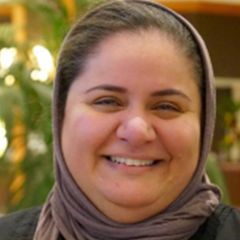Asian and Middle Eastern Studies
Asian and Middle Eastern Studies (AMES) will open up new worlds to you through intensive grounding in one of the major non-European civilizations.

Course overview
This is an exciting and important time to study Asian and Middle Eastern Studies (AMES). From the Atlantic to the Gulf, there have been movements for justice and freedom, transformations in environment and politics, and artistic and technological innovation. The only way to understand these incredible historical moments is to know the languages - to be able to talk to people, read their news and listen to their debates. Equally, just think of the growing economic power of China and South Korea. The intensive grounding in one of the major non-European civilizations that this course offers will open up entire new worlds to you.
For more information about the course and its modules, visit the University website.
What is it like to study AMES at King’s?
With some exceptions, AMES is a four-year course in which the third year is spent in an Asian or Middle Eastern country.
The relatively small number of students in AMES means that even lectures are often given to fewer than ten students, and there is much more contact between lecturer and student than is possible in bigger subjects where the audience may be over a hundred. In the first year of the course, teaching concentrates mostly on the basic elements of one or two languages, with students commonly choosing combinations such as Arabic with Persian, Hebrew or a European language, or a single language such as Chinese or Japanese.
In the second year, students do more advanced language work and also have a choice of modules including history, literature, society, and politics. In the third year, at least eight months are spent abroad in a country in which your language or languages are spoken. This is your chance to immerse yourself in the culture, politics, and people of a new place. Some students of Arabic enrol in a university course given in the target language, and many find private tuition or home-stays with families. Students of Japanese and Chinese enrol in universities designated by the Department. Many students also find internships with media outlets, the United Nations, or NGOs.
What do we look for in an applicant to AMES?
Much more than finding out what you know already, we want to find out about how you learn, how you think on your feet, and how you respond to challenges. During interviews, we will ask you plenty of questions to get you thinking and working. We will look for genuine interest in learning a new language and its politics, cultures, and histories. Students applying for AMES with a European language would have an additional language interview for their European language.
Requirements
A Level: A*AA
IB: 41-42 points overall with 7, 7, 6 at Higher Level
Subject requirements: See below
Admissions assessment: An admissions assessment is only required if you are combining AMES with a European language
Written work: None
Subject requirements
The first- and second-year teaching for Asian and Middle Eastern languages assumes no prior knowledge of the subject or language you have applied for. Although there are no specific subject requirements for these languages, we will obviously be very interested in your aptitude for language learning. Most applicants study a foreign language at school and should aim to achieve top grades in school-leaving foreign language subjects: it is desirable to be on track to achieve A* at A Level or equivalent in your language at the end of sixth form. If you are planning to combine Arabic, Persian, or Hebrew with a European language (French, German, Italian, Portuguese, Russian, or Spanish), you will need an A Level, IB Higher Level, or equivalent qualification in the European language.
An interest in the world (in politics, history, literature, etc.) is important too, whatever your language choices are. Many applicants have studied social sciences such as Economics or History, but it is also possible to apply and do well with a background in the maths and sciences. Strong applicants have often taken a combination of English, History, and a language (ancient or modern).
Admissions assessment
Candidates for AMES at King's are not required to take a written admissions assessment.
If you are applying for a European language alongside your Asian and Middle Eastern language, you will be asked to take the College admissions assessment for Modern & Medieval Languages (MML). You do not need to register for this written assessment as it will be organised automatically by the College if you are invited for interview. Students who are not applying for a European language do not take this assessment. For more information about this assessment, please see the University website.
Careers and graduate opportunities
AMES graduates go on to exciting careers everywhere where in-depth knowledge of places, peoples, cultures, and languages and critical thinking are highly sought after: journalism, civil service, non-governmental organisations, trade organisations, academia, and industry, including in new technology sectors like AI.
What is the best thing about studying AMES at King’s?
King’s is one of the most important hubs for the study of AMES in Cambridge. Several exciting initiatives, including the King’s in the Middle East lecture and seminar series, the King’s Silk Roads Programme, and collaborations with MML make it a vibrant community of scholars and students studying and travelling to the region.
A top tip for applicants to AMES at King’s
Be curious about AMES and excited about learning a new language. Read newspapers or magazines articles about and from the region and be prepared to have an open-ended conversation.
People
The Director of Studies for 2025-2026 is Dr Mezna Qato.


